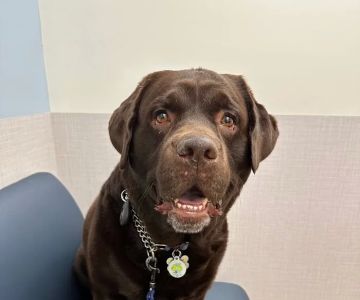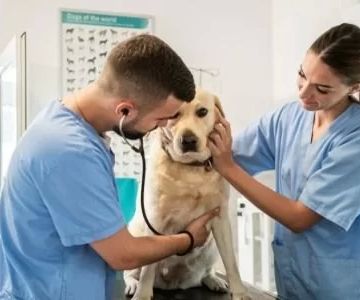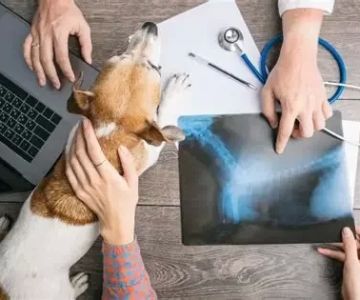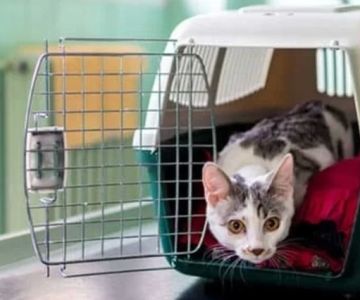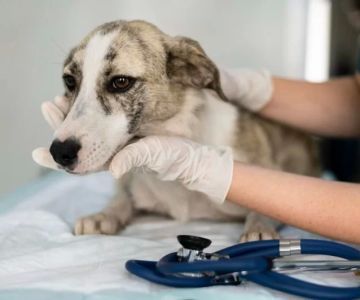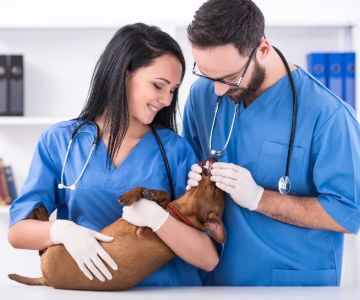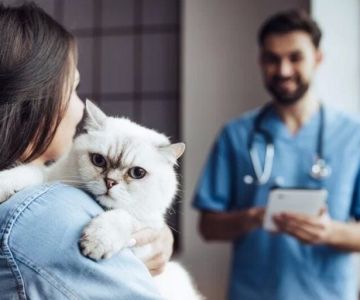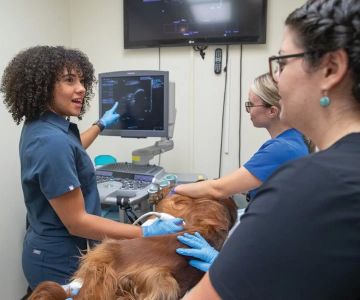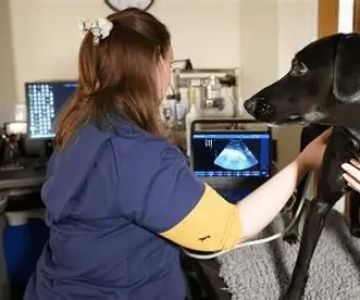What Is a Veterinary Ophthalmologist? Understanding the Role of Animal Eye Specialists
- what-is-a-veterinary-ophthalmologist
- how-veterinary-ophthalmologists-diagnose-pet-eye-conditions
- real-life-case-when-a-dogs-sight-was-saved
- common-reasons-your-pet-might-need-an-animal-eye-specialist
- what-to-expect-during-a-visit-to-a-veterinary-ophthalmologist
- treatments-and-surgeries-performed-by-veterinary-ophthalmologists
- when-to-seek-specialized-eye-care-for-your-dog-or-cat
- give-your-pet-the-gift-of-clear-vision
1. What Is a Veterinary Ophthalmologist?
Wondering what is a veterinary ophthalmologist? In simple terms, a veterinary ophthalmologist is a veterinarian who specializes in diagnosing and treating eye conditions in animals. These experts undergo additional training beyond standard veterinary school, focusing specifically on the anatomy, diseases, and surgical treatments related to animal vision. Whether it’s a dog with cataracts or a cat with glaucoma, these specialists play a critical role in maintaining and restoring sight in our pets.

6820 Edgeview Ave SW, Byron Center, MI 49315, USA
See Details2. How Veterinary Ophthalmologists Diagnose Pet Eye Conditions
Veterinary ophthalmologists use advanced diagnostic tools like slit-lamp biomicroscopy, tonometry (for eye pressure), and ocular ultrasound to assess vision issues. These techniques are similar to what human eye doctors use but tailored to pets. Understanding what is a veterinary ophthalmologist means appreciating the depth of science and technology behind this field. They not only identify surface-level issues but also detect deeper ocular diseases that might be missed by general veterinarians.
3. Real-Life Case: When a Dog’s Sight Was Saved
Take the case of Bella, a 7-year-old Labrador in Chicago. Her owner noticed she was bumping into furniture and avoiding stairs. A quick trip to the local vet led to a referral to a veterinary ophthalmologist. After a comprehensive exam, Bella was diagnosed with cataracts and underwent successful surgery. Today, she runs in the park like she did as a pup. Stories like Bella's highlight why knowing what is a veterinary ophthalmologist could mean the difference between blindness and recovery for your pet.
4. Common Reasons Your Pet Might Need an Animal Eye Specialist
Veterinary ophthalmologists treat a wide range of conditions, including:
- Corneal ulcers
- Cherry eye
- Progressive retinal atrophy
- Glaucoma
- Cataracts
- Eyelid abnormalities
If your dog or cat has red, cloudy, or watery eyes—or seems hesitant in low light—it might be time to consult an animal eye specialist. Early intervention can prevent permanent damage.
5. What to Expect During a Visit to a Veterinary Ophthalmologist
Your first visit typically involves a detailed ocular history, a physical exam, and a series of eye-specific diagnostic tests. Many pet owners are surprised at how thorough these exams are. Veterinary ophthalmologists often provide a printed report, treatment plan, and follow-up schedule. Understanding what is a veterinary ophthalmologist becomes real when you see the level of care and expertise provided.
6. Treatments and Surgeries Performed by Veterinary Ophthalmologists
These specialists perform a wide variety of treatments, from administering topical medications to conducting intricate eye surgeries. Common procedures include:
- Cataract extraction with intraocular lens implantation
- Lid reconstruction
- Laser surgery for glaucoma
- Enucleation (eye removal, in severe cases)
Thanks to ongoing advances in veterinary ophthalmology, even severe cases of pet blindness can sometimes be reversed or at least managed effectively.
7. When to Seek Specialized Eye Care for Your Dog or Cat
If your pet shows signs of visual distress—like bumping into objects, squinting, eye discharge, or unusual aggression—it’s time to consult a specialist. General vets can address basic eye care, but serious or persistent problems require the expertise of someone who knows precisely what a veterinary ophthalmologist is trained to do.
8. Give Your Pet the Gift of Clear Vision
Our pets rely on us for their quality of life. Vision problems can impact their confidence, mobility, and overall happiness. Now that you understand what is a veterinary ophthalmologist, you can make informed decisions when it comes to your pet’s eye health. If your furry companion is experiencing eye issues, don’t wait—schedule an appointment with a veterinary ophthalmologist and give them the gift of clear vision and renewed energy. Your pet will thank you—with every wag, purr, or happy blink.

